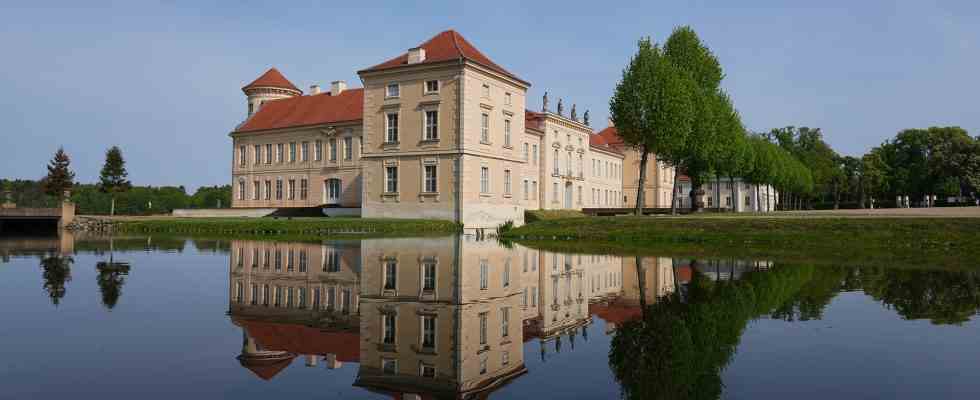Status: 08.03.2023 5:51 p.m
The House of Hohenzollern wants to settle its years-long legal dispute over expropriations with the state. Georg Friedrich Prince of Prussia announced that he would withdraw all lawsuits. The dispute is about castles, villas and works of art.
In the long-standing legal dispute over property issues, the head of the House of Hohenzollern, Georg Friedrich Prince of Prussia, wants to waive the previous claims against the German state. All lawsuits under the Compensation and Compensation Act have been withdrawn, said a spokesman for the news agency epd.
The legal dispute concerned real estate expropriated after 1945 in the territory of what later became the GDR, such as Rheinsberg Castle, the Bornstedt crown estate and a number of villas in Potsdam. The Soviet occupiers had accused the Hohenzollerns of collaborating with the Nazis. In addition, they deprived them, among other things, of their right to live in the castles in eastern Germany.
About 4000 works of art and a variety of other historical objects are added to the properties. The House of Hohenzollern demanded compensation of 1.2 million euros. The focus of the debate was the question of whether representatives of the House of Hohenzollern had significantly encouraged National Socialism. Compensation payments would have been legally excluded in this case.
The great-grandson of Crown Prince Wilhelm of Prussia told the newspaper “Welt” that withdrawing the demands was his personal decision, which he made “regardless of possible chances of success”. With the end of the procedure he wants to clear the way for an “unencumbered debate”.
Wants to renounce demands on the state: Georg Friedrich Prince of Prussia
Image: dpa
Politics is relieved
Brandenburg Finance Minister Katrin Lange (SPD) welcomed the waiver. “With this decision, the Gordian knot in the Hohenzollern complex has been cut, so to speak,” said the SPD politician. This ends a highly involved debate about compensation claims of various kinds that is difficult to understand for outsiders. “I think it’s the right decision too,” added Lange.
Minister of State for Culture Claudia Roth (Greens) told the “Spiegel” that it was “an important step if Mr. Georg Friedrich Prince of Prussia is now ready to separate historical questions from questions about the future handling of the cultural heritage of the House of Hohenzollern”. At the same time, Roth indicated that he was willing to talk. Under the new circumstances, a prerequisite for joint talks between the Hohenzollerns, the federal government and the states of Brandenburg and Berlin would be met. She is confident that a common path can be found in the interests of preserving art and collections in public institutions.
Brandenburg’s Minister of Culture Manja Schüle (SPD) said that the state’s clear line on the dispute with the Hohenzollerns had paid off. “I hope that the outstanding issues between those involved will be resolved in the spirit of today’s announcement: without courts, without threats, with great openness.”
Action against historians and journalists
Von Prussia emphasized in the “Welt” that he had no problem critically examining the family history. It cannot be clearly proven that Crown Prince Wilhelm gave the National Socialists advantages. However, he “clearly sought proximity to the Nazi regime”. As a person who has ingratiated himself with right-wing extremism, he cannot be a source of tradition for the house.
In the course of the legal dispute, he repeatedly had scientists and journalists warned. The portal for freedom of information “FragDenStaat” spoke of a “climate of intimidation”. Prussia called it a mistake to have taken legal action against historians and journalists in the past. All open procedures have therefore been terminated. However, he also wanted to make it clear: “I never tried to restrict scientific work – if that’s how it felt, I’m sorry.”
The portal for freedom of information “FragDenStaat” expressed relief about this announcement. “Through the many warnings against scientists and journalists, Mr. von Prussia created a climate of intimidation in which an open discourse was hardly possible,” said Arne Semsrott, head of the portal.

